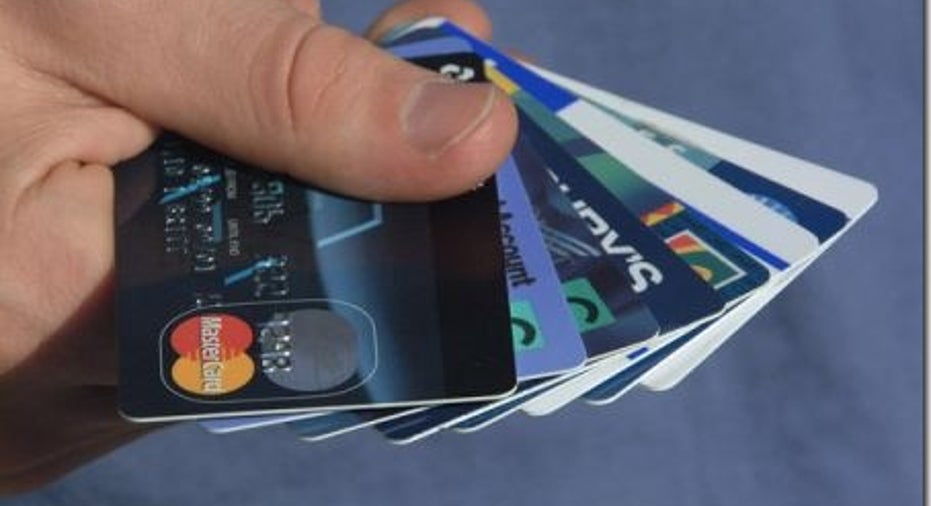Seven Worst Times to Use Your Credit Card

Your phone rings. It's your favorite charity on the line, asking for a donation. You could give generously by simply rattling off your credit card number.
You're in the market for a new car. You just received an offer for a cash back rewards card. Why not put the new car on the card and pocket the savings?
Your medical bills are adding up faster than you can pay them. You could catch up by putting those bills on your best credit card.
Not so fast
What are you getting yourself into? "If you can pay it back quickly, credit cards are a means to acquire something with safety and affordability," says Tom Coates, director of Consumer Credit of America in Des Moines, Iowa.
But before you pull out even your best rewards credit card, stop and think. In some cases, using your credit card could leave you vulnerable to identity theft or unauthorized use of your credit card account. In other cases, using your credit card may not be the smartest financial decision for you. Read on for situations when it's best to keep that Visa or American Express in your wallet and your account information under cover.
1. You get a cold call
If you contact a vendor yourself and give them your credit card number, that's probably OK, Coates says. But he adds, "Never give your credit card or any personal information to someone who contacted you." Look up the number yourself and then call back to make sure you're talking to a legitimate entity, he says.
That same advice applies to charitable giving, says Jessica Cecere, regional president of CredAbility Inc. "Many times you think you're doing a good thing, but a lot of scam and fraud occurs when you give their credit card number over the phone when you didn't initiate the call," Cecere says. Instead, ask for something to be sent in the mail, she advises.
2. Fly-by-night vendor
That arts and crafts show, that flea market in town for the day, the street vendor set up outside your office can all offer great bargains. Most of those vendors are probably as honest as the day is long.
But skimming - a form of identity theft where someone obtains your credit card number during or after a transaction - is more likely to occur in places where vendors are here today, gone tomorrow, Cecere says. Be extra cautious not to let your card out of your sight, and don't give your card to a vendor who seems shady.
3. Using snail mail
Don't write your credit card number on a bill and stick the bill in your home mailbox, Cecere warns. The red flag on your mailbox could alert a potential identify thief.
"That's not wise," she says. "Somebody can just go by your mailbox and get your mail. That's the way credit card and bank information is stolen all the time."
Better to call and give the information over the phone. If you do write the number down on the bill, mail the bill at the post office, Cecere advises.
4. Major medical bills
"You should never pay for a hospital stay or full-charge medical bills with a credit card," says Carmen Wong Ulrich, personal finance writer and author of The Real Cost of Living.
"Medical and hospital bills are negotiable so you don't want to lock in a 'retail' price by charging your bill onto a card. Once that card is swiped and you sign, you're stuck paying full price," she says.
Instead, ask for a bill and negotiate it down, Ulrich says.
5. The tax man
Your tax bill may be in the thousands, and wouldn't it be nice to put it on your travel rewards card? Can you see the palm trees swaying already? But even if you pay that credit card bill in full, there is a surcharge for putting your taxes on plastic that can cost you more than 2%, Ulrich says.
Besides, if you owe a lot of money in back taxes, you can try to negotiate with the IRS to settle for less, and possibly work out a monthly payment plan with little or no interest, she says.
6. A car loan
You've got a low introductory rate credit card with an interest lower than the dealer or your bank can offer you on a car loan. But will you be able to pay off the balance before the low rate bumps up to the higher "go-to" rate?
"Credit cards shouldn't be thought of as just any other type of loan or borrowing," Ulrich says. "Interest rates can change and fees can grow. Anything you can buy with a fixed, low-interest rate private loan probably should be bought that way."
7. Shopping spree
Don't put consumable goods on credit unless you have the funds on hand to pay the bill in full when it comes, Coates and Cecere both advise. A water heater is a legitimate cost and necessity, Coates says. Not so a new wardrobe, a fancy restaurant meal or vacation travel. Like the traveling flea market, that filet of fish is here today and gone tomorrow.
"We had a guy in the office the other day who had built up nearly $300,000 on his credit card," Coates says. The money went for travel, clothing and other expenses that left him with nothing to show for it. Except the bill.
It's just another way of saying "live within your means." The best credit cards, when you use them wisely, can reward you with convenience and perks without requiring you to live beyond your budget.
The original article can be found at CardRatings.com:7 worst times to use your credit card



















